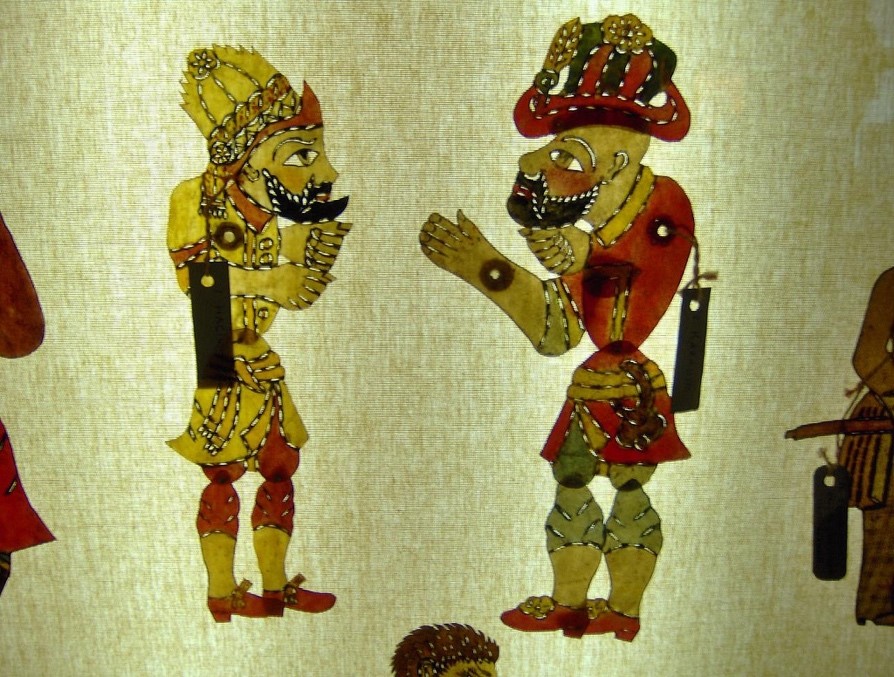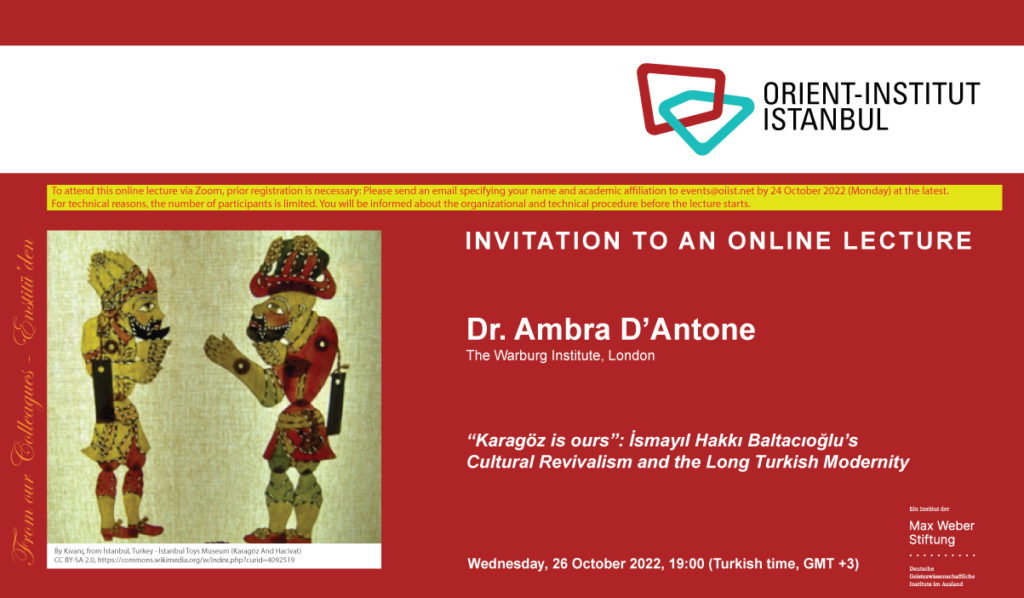Oktober, 2022
Details
IMPORTANT NOTICE: To attend this online lecture via Zoom, prior registration is necessary: Please send an email specifying your
Details
IMPORTANT NOTICE: To attend this online lecture via Zoom, prior registration is necessary: Please send an email specifying your name and academic affiliation to events@oiist.net by 24 October 2022 (Monday) at the latest. For technical reasons, the number of participants is limited. You will be informed about the organizational and technical procedure before the lecture starts.
Dr Ambra D’Antone
(The Warburg Institute, London)
“Karagöz is ours”: İsmayıl Hakkı Baltacıoğlu’s Cultural Revivalism and the Long Turkish Modernity
Wednesday, 26 October 2022, 19:00 (Turkish time, GMT + 3)

By Kıvanç from İstanbul, Turkey – İstanbul Toys Museum ( Karagöz And Hacivat), CC BY-SA 2.0, https://commons.wikimedia.org/w/index.php?curid=4092519
In 1939, the Turkish scholar and art critic İsmayıl Hakkı Baltacıoğlu (1886-1978) spearheaded within the pages of his magazine Yeni Adam (New Man) a campaign of recovery of shadow theatre plays. Known informally as Karagöz plays, these candlelit performances of flat figurines mounted on sticks had been a widespread cultural phenomenon during the Ottoman Empire, but their relevance in the newly built, progress-facing Turkish Republic had been under questioning by the Turkish intelligentsia. Mustafa Kemal Atatürk’s programme of modernisation of Turkey, in fact, gestured towards the ideological severance of the Republic from its very recent Ottoman past. For Baltacıoğlu, who belonged to an oppositional faction of more “conservative” minded intellectuals, the inherent modernity of the Turkish nation could only be located in select, surviving forms of its collective memory and traditions – of which Karagöz was a powerful example – upon which Baltacıoğlu bestowed a creative impetus capable of revealing an authentic, self-sufficient and modern Turkish identity.
This lecture will discuss Baltacıoğlu’s recuperation of Karagöz in the press as instances of a wider phenomenon of cultural revivalism, closely connected to local art historiographical practices that had been developed since the 1920s. These accounts, privileging notions of anachronism, historical duration and the survival of form, joined an anti-orientalist and anti-colonial tradition which paired a deliberate self-orientalising vocabulary to avant-garde terminology adapted from European artistic quarters. Baltacioglu’s cultural intervention, whose conservative modernist attitude was politically motivated by his nationalistic beliefs, articulated the shadow theatre plays and its puppets as mobile carriers of the region’s artistic memory, positioning Turkish art history on an alternative trajectory of influence, memory and progress.
Dr Ambra D’Antone is a historian of global modern art and art historiography, with a particular interest for Early Republican Turkey, Syria and Lebanon. She is currently working as Research Associate of the Max Weber Stiftung’s Bilderfahrzeuge International Research Group and is based at The Warburg Institute in London, working on a book provisionally titled Methods of Turkish Art History: Writing Modern Art in Istanbul, 1926-1960. Dr. D’Antone is currently a Gerald D. Feldman postdoctoral research fellow at the Orient-Institut Istanbul.
Zeit
(Mittwoch) 19:00

